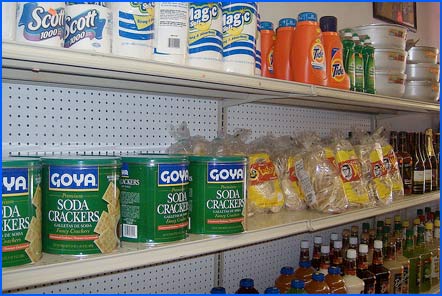
Among the critics of Michelle Obama’s Let’s Move! program, which was intended to reduce childhood obesity, many have complained that it puts too much emphasis on nutrition. In fact, nutrition, informed three out of four of the basic tenets of Let’s Move! school of food, needs a lot of work, no question about that.
Dr. Pretlow agrees that Let’s Move! places excessive significance on a perceived need to educate parents more, and presumably through them, to benefit their children. In one way, this is undeniable, because in order to prevent their kids from being addicted to hyperpalatable food-like substances, parents need to know what to feed them instead.
The catch is, everybody pretty much knows all this stuff by now. Especially school children, who have repeatedly told Dr. Pretlow, via the Weigh2Rock website, that they have had it up to here with nutritional education. While it does provide employment for teachers, shoveling more information about calories and vitamins into brains of America’s kids is not doing much good. What kids need are healthier emotional lives, so they don’t fall prey to comfort eating and progress from there to full-blown food addiction, and effective treatment if they are already hooked.
As for the third premise of Let’s Move!, there may or may not be food deserts, and it may or may not be appropriate for the government to intervene, and it may or may not make a difference anyway. One of the problems here is, an awful lot of what we know about the subject stems from only a handful of studies, such as a 2009 report from the U.S. Department of Agriculture, based on data gathered in 2006, in one county of Texas.
They located 971 food retail outlets, only 18 of which were supermarkets or grocery stores; 255 of the businesses were convenience stores, the majority of them also selling automotive fuel. Only 23% of the convenience stores offered “grocery items,” which probably means a couple of apples and bananas next to the register.
Also, the researchers found 97 specialty food stores, and 27% of that category of food store “did not have a fixed location,” which indicates what plain speakers call a roach coach. However, it must be said that in ethnic neighborhoods, mobile food outlets can be a very positive feature of the landscape. There is a good chance that the menu items will at least be fresh, unsullied by strange chemical preservatives, and prepared with the same care as the proprietor takes with her or his own family’s food.
In the category of specialty food stores, more featured baked goods as their area of specialization than fruit and/or vegetables. And in some neighborhoods, 15% of the households didn’t have vehicles in which to drive around in search of nutritious food.
But, what does it all mean? The proof of correlation between “food deserts” and childhood obesity has yet to be confirmed.
Your responses and feedback are welcome!
Source: “Food and Nutrition Assistance Research Database,” USDA.gov, 07/05/12
Image by vis-a-v, used under its Creative Commons license.

 FAQs and Media Requests:
FAQs and Media Requests: 











